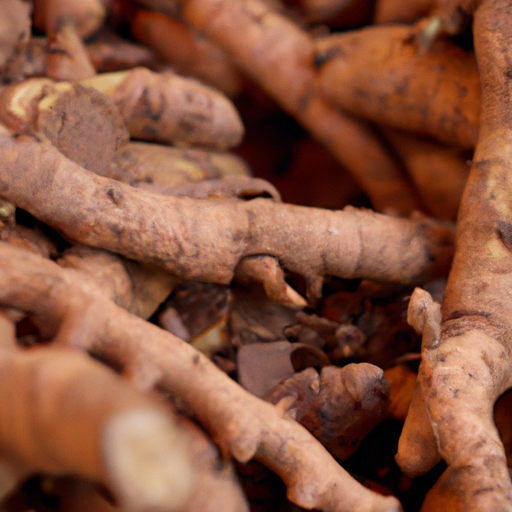The Importance of Traditional Medicine in Modern Healthcare
In today’s fast-paced and technologically advanced world, it’s easy to overlook the wisdom and value of traditional medicine. However, as we strive for progress and innovation, it’s crucial that we don’t forget the importance of our roots. Traditional medicine, with its ancient practices and remedies, has stood the test of time for a reason. It offers a unique perspective on health and healing that complements modern healthcare in ways that cannot be ignored.
One of the key reasons why traditional medicine is so important in modern healthcare is its holistic approach. Unlike modern medicine, which often focuses solely on treating symptoms, traditional medicine takes into account the whole person – mind, body, and spirit. It recognizes that health is not just the absence of disease, but a state of balance and harmony. By addressing the underlying causes of illness and promoting overall well-being, traditional medicine offers a more comprehensive and sustainable approach to healthcare.
Another significant aspect of traditional medicine is its emphasis on prevention. In modern healthcare, we often wait until a person is sick before taking action. Traditional medicine, on the other hand, places great importance on maintaining good health and preventing illness in the first place. Through practices such as acupuncture, herbal medicine, and dietary adjustments, traditional medicine helps to strengthen the body’s natural defenses and promote optimal health. By focusing on prevention, we can reduce the burden on our healthcare system and improve the overall well-being of individuals and communities.
Traditional medicine also offers a wealth of knowledge and wisdom that can enhance modern healthcare. Many traditional healing practices have been passed down through generations, with each generation building upon the knowledge of their ancestors. This accumulated wisdom provides valuable insights into the intricate workings of the human body and the natural world. By integrating this knowledge into modern healthcare, we can tap into a vast reservoir of information that can help us better understand and treat a wide range of health conditions.
Furthermore, traditional medicine often utilizes natural remedies that have been used for centuries. These remedies, derived from plants, minerals, and other natural sources, can offer effective and gentle alternatives to synthetic drugs. In a world where we are becoming increasingly aware of the potential side effects and long-term consequences of pharmaceuticals, traditional medicine provides a welcome alternative. By harnessing the healing power of nature, we can reduce our reliance on synthetic drugs and embrace a more sustainable and holistic approach to healthcare.
In conclusion, traditional medicine has a vital role to play in modern healthcare. Its holistic approach, emphasis on prevention, accumulated wisdom, and natural remedies all contribute to a more comprehensive and sustainable healthcare system. By embracing our roots and integrating traditional medicine into modern healthcare, we can tap into a wealth of knowledge and wisdom that has stood the test of time. Let us not forget the timeless wisdom of traditional medicine and the valuable contributions it can make to our health and well-being.
Exploring the Healing Power of Herbal Remedies in Traditional Medicine

Embracing Our Roots: The Timeless Wisdom of Traditional Medicine
Exploring the Healing Power of Herbal Remedies in Traditional Medicine
In a world where modern medicine often takes center stage, it’s easy to overlook the wisdom and healing power of traditional medicine. For centuries, our ancestors relied on herbal remedies to treat a wide range of ailments, and today, many are rediscovering the benefits of these natural remedies.
Herbal remedies have been used in traditional medicine systems such as Ayurveda, Traditional Chinese Medicine (TCM), and Native American medicine for thousands of years. These ancient healing practices recognize the interconnectedness of the body, mind, and spirit, and seek to restore balance and harmony within the individual.
One of the key principles of traditional medicine is the belief that nature provides us with everything we need to heal. Herbal remedies are derived from plants, which are rich in medicinal properties. From soothing chamomile to invigorating ginseng, each herb has its own unique healing properties that can address specific health concerns.
One of the advantages of herbal remedies is their gentle yet effective nature. Unlike synthetic drugs, which often come with a long list of side effects, herbal remedies work in harmony with the body, supporting its natural healing processes. This makes them a safe and viable option for those seeking natural alternatives to conventional medicine.
Herbal remedies can be used to address a wide range of health issues. For example, ginger has long been used to alleviate digestive discomfort, while lavender is known for its calming properties. Echinacea is a popular herb for boosting the immune system, and turmeric has powerful anti-inflammatory effects. These are just a few examples of the countless herbs that can be used to promote health and well-being.
In addition to their physical benefits, herbal remedies also have a profound impact on our mental and emotional well-being. Many herbs have been used for centuries to support mental clarity, reduce stress, and promote relaxation. For example, the scent of lavender has been shown to have a calming effect on the nervous system, while chamomile tea is often used as a natural remedy for anxiety and insomnia.
While modern medicine has undoubtedly made significant advancements in treating and preventing diseases, it’s important not to overlook the wisdom of traditional medicine. Traditional healing practices have stood the test of time, and their effectiveness is backed by centuries of experience and observation.
In recent years, there has been a resurgence of interest in traditional medicine and herbal remedies. People are increasingly seeking natural alternatives to conventional medicine, and are turning to traditional healing practices to address their health concerns. This shift is not only driven by a desire for more holistic and personalized care, but also by a growing recognition of the importance of sustainability and environmental stewardship.
As we embrace our roots and rediscover the timeless wisdom of traditional medicine, it’s important to approach herbal remedies with an open mind and a willingness to learn. While they may not be a cure-all for every ailment, they can certainly play a valuable role in supporting our overall health and well-being.
So, the next time you’re feeling under the weather or simply in need of a little boost, consider turning to the healing power of herbal remedies. Whether it’s a cup of soothing herbal tea or a topical herbal ointment, you may just find that nature has the answers you’ve been seeking all along.
Traditional Medicine: Preserving Cultural Heritage and Promoting Wellness
Embracing Our Roots: The Timeless Wisdom of Traditional Medicine
Traditional Medicine: Preserving Cultural Heritage and Promoting Wellness
In a world that is constantly evolving and advancing, it is easy to overlook the wisdom and knowledge that has been passed down through generations. Traditional medicine, rooted in ancient practices and beliefs, holds a wealth of timeless wisdom that can greatly benefit our modern lives. By embracing our roots and recognizing the value of traditional medicine, we not only preserve our cultural heritage but also promote wellness in a holistic and natural way.
Traditional medicine encompasses a wide range of practices and remedies that have been used for centuries by different cultures around the world. From Ayurveda in India to Traditional Chinese Medicine, these ancient healing systems have stood the test of time and continue to be relevant today. What sets traditional medicine apart is its holistic approach, which considers the interconnectedness of the mind, body, and spirit. This approach recognizes that true wellness cannot be achieved by simply treating symptoms but by addressing the underlying imbalances that cause them.
One of the key strengths of traditional medicine lies in its emphasis on prevention rather than cure. Traditional healers have long understood the importance of maintaining balance and harmony within the body to prevent illness from taking hold. Through practices such as acupuncture, herbal medicine, and dietary adjustments, traditional medicine seeks to strengthen the body’s natural defenses and promote overall well-being. By adopting these preventive measures, we can reduce our reliance on pharmaceutical interventions and take a proactive approach to our health.
Another aspect of traditional medicine that deserves recognition is its deep connection to nature. Traditional healers have always understood the healing power of plants and have developed a vast repertoire of herbal remedies. These natural remedies not only address physical ailments but also nourish the spirit and promote emotional well-being. By incorporating herbal medicine into our lives, we can tap into the healing properties of nature and reconnect with the earth in a profound way.
Furthermore, traditional medicine places great importance on individualized care. Unlike modern medicine, which often takes a one-size-fits-all approach, traditional healers recognize that each person is unique and requires personalized treatment. By taking the time to understand a person’s constitution, lifestyle, and specific health concerns, traditional medicine can provide tailored solutions that address the root cause of the problem. This personalized approach not only leads to more effective treatment but also fosters a deeper sense of connection and trust between the healer and the patient.
In a world where technology and quick fixes dominate, it is easy to overlook the wisdom of our ancestors. However, by embracing our roots and recognizing the value of traditional medicine, we can tap into a wealth of timeless wisdom that promotes wellness in a holistic and natural way. Traditional medicine not only preserves our cultural heritage but also offers a path to true well-being by addressing the root causes of illness and promoting balance in all aspects of our lives. So let us honor the wisdom of our ancestors and embrace the healing power of traditional medicine.

